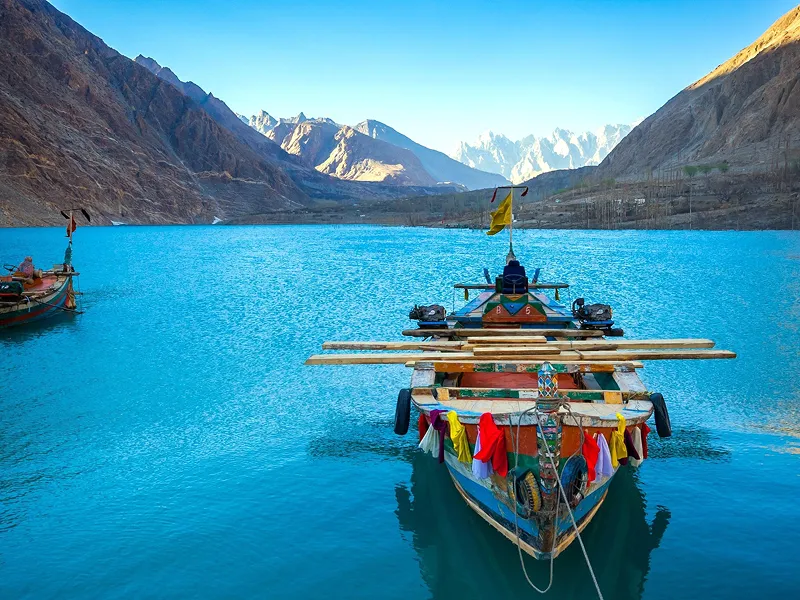
Pakistan is often misunderstood by many due to media portrayals, but for solo travelers, it offers an enriching and breathtaking experience, especially for those ready to break stereotypes. I embarked on a solo adventure to Pakistan, visiting the vibrant cities of Lahore and Islamabad, and the magical landscapes of Hunza in Gilgit-Baltistan. Here’s everything you need to know about safely navigating this incredible country and why you should add it to your travel bucket list.
Why Pakistan?
Pakistan offers some of the most stunning natural landscapes on earth. From snow-capped mountains and crystal-clear lakes to bustling bazaars and historical landmarks, the country is a diverse mix of culture and beauty. For solo travelers, it’s a destination that promises adventure, hospitality, and opportunities to challenge stereotypes.
My Hunza Experience
The Valley of Hunza
Hunza is part of the scenic Gilgit-Baltistan region, nestled in the shadows of some of the world’s tallest peaks. Known as a "paradise on earth," this mountainous valley lies at an elevation of 2,438 meters and borders the Xinjiang region of China.
Speaking of hospitality, the people of Hunza are warm, helpful, and highly educated. With one of the highest literacy rates in Pakistan, this is a progressive community where women work as entrepreneurs, farmers, and educators. Adding to the ease of travel, locals are fluent in English alongside their native Burushaski, Wakhi, and Shina languages.
Getting There and First Impressions
I visited Hunza in early March while the valley was transitioning into spring. With every turn of the mountain roads, I saw captivating sights of snow-capped peaks and endless blue skies. After landing at the tiny yet picturesque airport in Gilgit, I headed straight to my accommodation, the luxurious Gilgit Serena Hotel, surrounded by towering mountains.
From there, I embarked on the 2.5-hour drive to Hunza. The utterly scenic route made the time fly as I passed villages, rivers, and an array of pinkish-white blossoms welcoming spring.
Upon arriving in Hunza, I was greeted by vibrant colors and serene landscapes that felt like stepping into a dream.
Key Attractions in Hunza
Altit Fort & Heritage Village
My first stop was Altit Fort, an ancient marvel with over 1,100 years of history. The fort and nearby village have been beautifully restored by the Aga Khan Cultural Service, preserving the region’s heritage. Wandering through the heritage-rich alleys felt like stepping back in time.
Baltit Fort
Next, I explored Baltit Fort, which sits atop a hill overlooking Karimabad. Reaching it requires a 15-minute walk up a steep path through a charming village. The effort is worth it as the panoramic views of the valleys below and the surrounding snowy peaks are breathtaking.
Attabad Lake & Passu Cones
Later, I crossed the iconic Attabad Lake, which dazzled with its emerald-green waters. The tranquility is unmatched as the lake reflects the looming mountains that surround it. Driving further, I encountered the grandeur of the famous Passu Cones, jagged peaks that seem to pierce the sky.
Hussaini Hanging Bridge
For thrill-seekers, I highly recommend crossing the Hussaini Hanging Bridge. Known as one of the world’s most dangerous suspension bridges, its swaying wooden planks are both thrilling and nerve-wracking to cross.
Miraculously, after all these adventures, I felt re-energized by the hospitality of the locals, who were always ready to offer a warm meal or a place to rest.
Exploring Lahore and Islamabad
After my time in Hunza, I traveled to Lahore and Islamabad, two cities that couldn’t be more different yet equally fascinating.
Lahore
Lahore is a city of culture, history, and color. Highlights of my visit included witnessing the grand flag-lowering ceremony at Wagah Border, exploring the bustling bazaars, and seeing iconic historical landmarks like the Badshahi Mosque and Lahore Fort.
Islamabad
On the other hand, Islamabad offered a refreshing contrast with its clean streets, scenic trails, and serene vibe. The Faisal Mosque, one of the largest in the world, stood out as a peaceful and architectural masterpiece. Wherever I went, the locals were incredibly welcoming, often inviting me for chai to learn more about me and share their culture.
Is Pakistan Safe for Solo Female Travelers?
This is the question I’ve been asked the most, and I want to give an honest answer. Yes, Pakistan is safe for solo travel, even for women, as long as you take reasonable precautions. Book reputable accommodations, hire guides if necessary, and dress modestly to respect cultural sensitivities. The friendliness of the locals will quickly make you feel at home.
Tips for Solo Travelers
- Book Guided Tours: Guides not only help with navigation but also enrich your experience with their local insights.
- Pack for Weather Extremes: The mountainous regions can be cold even in spring, so come prepared.
- Interact with Locals: Don’t shy away from conversations. People in Pakistan are known for their hospitality and will gladly help you or share stories.
- Go with an Open Mind: Be willing to learn and adapt, and you’ll leave with memorable experiences.
Solo Travel Ratings
- Safety: 1 (1 = very safe, 3 = requires caution)
- Language: 2 (English speakers are easy to find)
- Navigation: 1 (Relatively easy with guides or transit)
- Culture: 2 (Different but relaxed and welcoming)
Why You Should Visit Pakistan
Pakistan’s offering of culture, landscape, and hospitality makes it an unparalleled destination for solo travelers. Whether you’re trekking the Karakoram, exploring historic bazaars, or marveling at serene lakes, this country has something for everyone.
If you’re looking to connect with nature, history, and warmth, Pakistan should be next on your list. So, pack your bags, bring an open mind, and prepare for an adventure of a lifetime.



